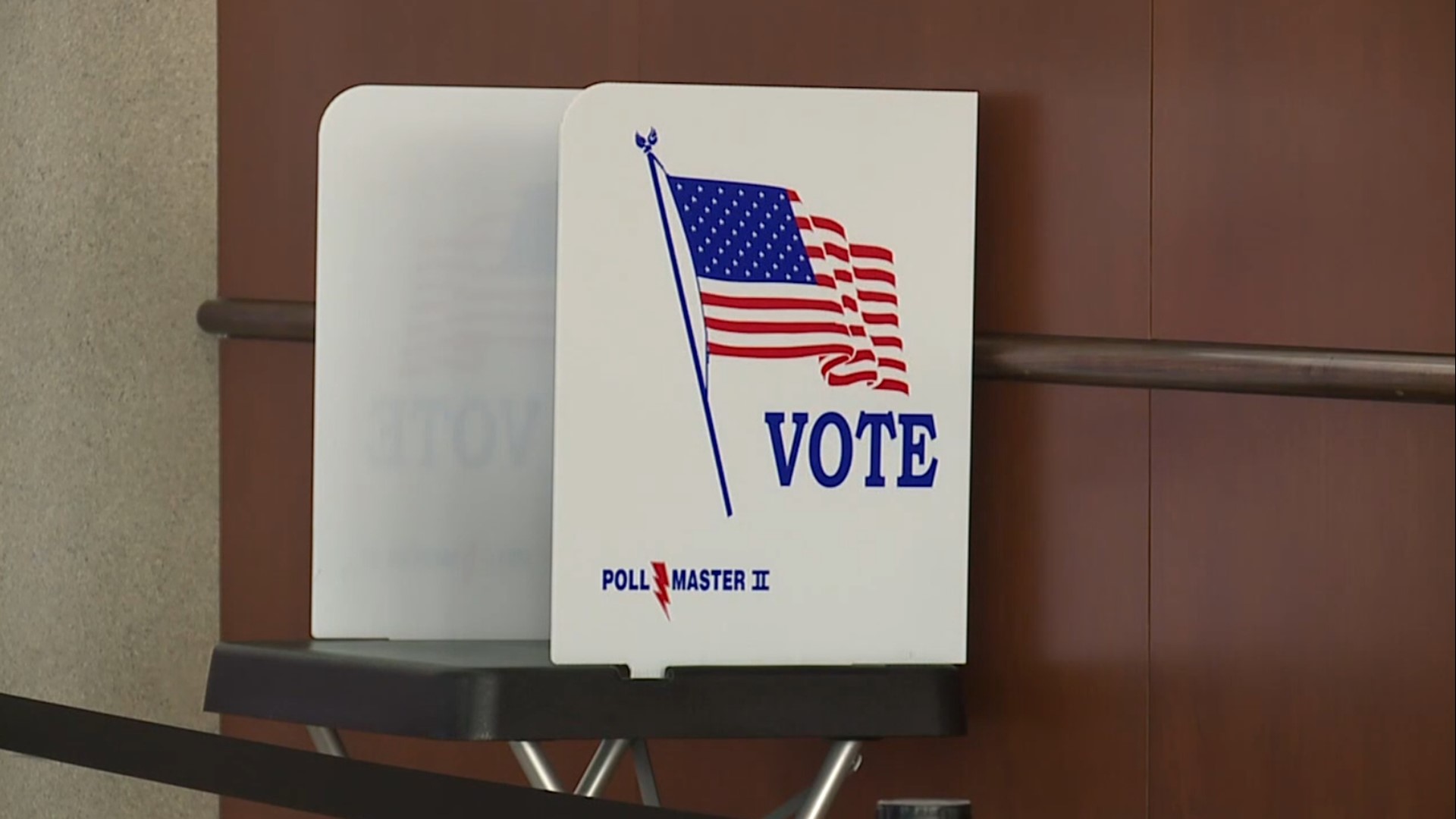CAMP HILL, Pa. — School board elections are known for focusing on mundane, but necessary, issues like passing budgets, setting tax rates and building new school facilities.
“If you run for school board you’re going to spend a lot of time doing personnel and budget matters and all those kinds of things,” said Berwood Yost, director of Franklin and Marshall College’s Center for Opinion Research and the Floyd Institute for Public Policy. “You’re not going to spend a lot of time talking about critical race theory, for instance.”
But that’s precisely what’s happening in one Cumberland County school board race, which has become part of the trend toward hyper partisan debates of national politics infiltrating local elections.
An anonymous letter recently arrived at some Camp Hill homes attacking three Democratic candidates for the Camp Hill School District—Josceylon Buchs, Melanie Gurgiolo and Karen Mallah.
The letter also accuses them of supporting the teaching of “radical” ideas such as critical race theory, an academic framework used to examine race and racism. Opponents often use the term has as a catchall phrase for teaching students about racism and the related subjects of equity, diversity and inclusion.
None of the three candidates have said they support the teaching of critical race theory.
However, the incident illustrates a turn from focusing on local challenges toward broad ideological issues.
Nationalization of local elections has been on the rise since the 1980s, partially due to the rise of political parties as the main supporters of political candidates.
The decline of local journalism has also contributed to the trend. Newsrooms have lost a quarter of their employees since 2008, according to the Pew Research Center. Most of those jobs were eliminated from local newspapers, leading to “news deserts,” areas that have one or no local paper.
“People began to pay more attention to national issues as national problems became a bigger part of their lives. At the same time local news sources were starting to decline as a source of information. You had a rise of national cable news,” Yost said.
Polarization and nationalization of local elections are linked in a self-sustaining feedback loop. When voters are making decisions based on national, often polarizing issues, local politicians run on those issues, which in turn makes voters focus on them more.
Its result has shown up in polls. Voters are increasingly voting along party lines for presidential, state and municipal candidates, according to the Pew Research Center.
Yost, who is writing a book about nationalization of local elections, said the phenomenon is a double-edged sword; national issues can energize people and get them more engaged and involved in local elections, but they also create strong feelings and increasingly, uncivil discourse.
“That’s the result of nationalized politics, right?” Yost said. “This negative partisanship where we really dislike the other.”
The three Camp Hill School Director candidates released full statements regarding the anonymous letter sent out against them:
Melanie Gurgiolo:
"I love Camp Hill and its excellent schools, and my fellow board members can confirm that for the past four years I have been working tirelessly for our students and community, rather than pursuing a radical agenda. I trust that the anonymous letter is just an isolated incident, and that Camp Hill voters will disregard such divisive antics."
Josceylon Buchs:
“The response that has rippled through the community has been that not only was it completely inappropriate to send a letter like the one that was sent, but also that the content therein was so very divisive. I think a lot of people felt it wasn’t really indicative of the majority or even the feeling within the community from a political perspective.”
Karen Mallah:
“I was certainly disappointed to see the letter, filled with false statements, being sent to neighbors who support us. What I’ve tried to do is bring the conversation back to a local level. I’ve asked that folks in Camp Hill contact me directly, and I’ve continued to knock on doors. That has led to some great conversations about what terms like diversity, equity and inclusion could mean in practice in our own schools; and, it has given me the opportunity to hear directly from community members about their hopes, joys, ideas, and concerns.”

